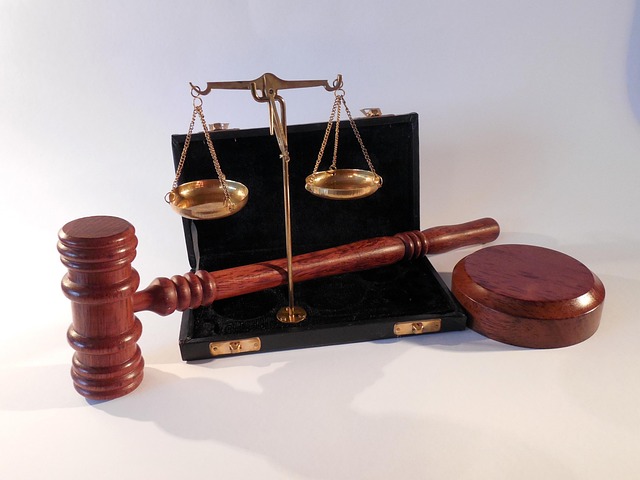The RF Regulatory Agency (RFRA) conducts thorough investigations into wireless communication non-compliance, focusing on radio frequency (RF) standards violations and unfair business practices. These inquiries can lead to class-action lawsuits seeking compensation from RF regulatory agency investigations, offering a path to redress for harmed individuals and entities. With a strong track record in securing favorable verdicts, the RFRA ensures adherence to safety standards and promotes fairness, closely monitoring companies with RF-related violations. Strategic legal representation is crucial during these investigations, aiming to maximize compensation while defending against accusations, particularly for those facing white-collar and economic crimes charges.
“Unraveling RF Regulatory Agency Investigations: A Comprehensive Guide offers an in-depth look at the intricate process and its impact. This article explores the role of regulatory bodies in ensuring safe radiofrequency (RF) technologies, focusing on investigations and class action lawsuits. We delve into the reasons behind these inquiries, the legal framework guiding them, and the significance of strategic legal representation for maximizing compensation from class action settlements. Understanding these aspects is vital for both industry players and consumers.”
- Understanding RF Regulatory Agency Investigations: A Comprehensive Overview
- The Role of Compensation in Class Action Lawsuits Related to RF Agencies
- Common Causes for RF Agency Investigatory Actions
- The Legal Framework and Process of RF Regulatory Investigations
- Maximizing Compensation Through Strategic Legal Representation in RF Class Actions
Understanding RF Regulatory Agency Investigations: A Comprehensive Overview

RF Regulatory Agency Investigations play a crucial role in ensuring compliance with wireless communication standards and safety protocols. These inquiries are comprehensive processes that involve meticulous examination of various aspects, from device design to network operations. The primary goal is to safeguard consumers and maintain fair competition within the industry.
When violations are uncovered, affected individuals may have grounds for compensation through class-action lawsuits, a powerful mechanism in seeking justice across the country. Winning challenging defense verdicts in jury trials has become a defining feature of these investigations, demonstrating the agency’s commitment to upholding regulations and protecting public interests.
The Role of Compensation in Class Action Lawsuits Related to RF Agencies

In class action lawsuits related to RF Regulatory Agency investigations, compensation plays a pivotal role in resolving disputes and offering redress to affected parties. These high-stakes cases often involve complex regulatory issues and can lead to significant financial implications for respective businesses. The compensation from class action lawsuits serves as a powerful tool to address violations, ensure accountability, and provide relief to those who have suffered losses due to RF agency noncompliance.
Winning challenging defense verdicts in such cases is not merely about legal strategy; it’s about demonstrating a commitment to fairness and justice. Effective compensation plans not only settle claims but also act as deterrents, encouraging businesses to adhere strictly to RF regulatory guidelines in the future. This approach fosters a balanced ecosystem where regulations are respected, rights are protected, and responsible conduct is rewarded.
Common Causes for RF Agency Investigatory Actions

RF Regulatory Agency investigations often stem from a variety of issues that warrant closer scrutiny. One common trigger is non-compliance with radio frequency (RF) standards, which can result from equipment malfunctions, improper use, or intentional manipulation. These violations can lead to significant safety risks and harm to both individuals and the environment.
Another major cause for investigatory actions is the potential for unfair business practices, including those related to class action lawsuits that seek compensation. In light of an unprecedented track record of successful cases, RF regulatory agencies closely monitor companies with a history of RF-related violations, ensuring they adhere to legal and safety guidelines. This approach targets both general criminal defense strategies and individual client concerns, fostering a more transparent and accountable corporate landscape.
The Legal Framework and Process of RF Regulatory Investigations

The legal framework governing RF Regulatory Agency (RFRA) investigations is a robust and intricate system designed to ensure fair practices in the radio frequency (RF) spectrum utilization. When an investigation unfolds, it’s guided by strict protocols and laws that protect both consumers and industry players. These regulations aim to prevent illegal activities such as unauthorized transmission, interference with critical systems, or misuse of RF technologies, ensuring a safe and efficient spectrum environment.
The process begins with the RFRA identifying potential violations through various means, including citizen complaints, technical analyses, or routine audits. Upon verification, an official inquiry is launched, providing the accused party with an opportunity to present their case. The agency’s goal is not only to enforce regulations but also to achieve justice, which may include financial compensation from class action lawsuits for affected parties. Over time, a seasoned lawyer specializing in RF regulatory matters can help clients navigate these complex investigations, aiming for winning challenging defense verdicts and achieving extraordinary results for his clients.
Maximizing Compensation Through Strategic Legal Representation in RF Class Actions

In RF regulatory agency investigations, strategic legal representation can significantly maximize compensation for individuals and entities involved in radio frequency (RF) class actions. Skilled attorneys specializing in such cases understand the intricate details of RF technologies and regulatory frameworks, empowering them to build strong arguments on behalf of their clients. By navigating complex legal landscapes, they ensure that affected parties receive fair and just compensation from class action lawsuits.
This strategic approach involves meticulous documentation, thorough analyses of regulatory violations, and a deep understanding of the economic impact on stakeholders. For his clients, particularly those facing white collar and economic crimes accusations, the goal is to avoid indictment while securing substantial financial settlements. This not only compensates for losses but also ensures that businesses and individuals can move forward with their operations, learning from past mistakes in an ever-evolving regulatory environment.
RF Regulatory Agency investigations can significantly impact individuals and businesses affected by potential non-compliance. Understanding the legal framework, common causes, and strategic approaches to these investigations is crucial. Moreover, recognizing the role of compensation in class action lawsuits related to RF agencies can provide a financial safety net for those harmed. By delving into these aspects, individuals and businesses can better navigate these complex matters and maximize potential Compensation from Class Action Lawsuits.






